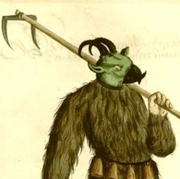|
Be sure to read 1493 as well, itís just as good
|
|
|
|

|
| # ? Jun 10, 2024 08:48 |
|
As well as 1421, which I'm sure you will find very interesting.
|
|
|
|
Don't accidentally buy the book 1492, which sucks. ed. It's possible that it doesn't suck and I just thought it did when I was 19 and disappointed because I thought it was the sequel of 1491 Grevling has issued a correction as of 06:30 on Aug 23, 2019 |
|
|
|
Mantis42 posted:As well as 1421, which I'm sure you will find very interesting. Nah that one is horseshit, Menzies claims that the Chinese first settled North America on the Pacific Coast, but it is obvious that they had actually settled on the Atlantic coast. Everything else is correct though.
|
|
|
|
twoday posted:Be sure to read 1493 as well, itís just as good Yeah iíve been meaning to read that one! glad to hear itís just as good
|
|
|
|
Ghostlight posted:Here's the thing. My understanding is, there are accounts from the 18th hundred from european explorers which claimed to have encountered island tribes of people with beard and whiter (not white) skin than those around and he thought they might have been the people from those legends. Wheter those claims are true or not, i dont know. Im really only starting to learn about south america because thats a subject that wasnt taught at all back when i was in school. Dalael has issued a correction as of 13:55 on Aug 23, 2019 |
|
|
|
Dalael posted:
loving this rare 3 edit "no u mad" post
|
|
|
Dalael posted:My understanding is, there are accounts from the 18th hundred from european explorers which claimed to have encountered island tribes of people with beard and whiter (not white) skin than those around and he thought they might have been the people from those legends. Accounts from european explorers should be taken with a pinch of salt.
|
|
|
|
|
This is A Good Thread after seeing some Graham Hancock and Randall Carlson episodes of the JRE podcast. I find their Younger Dryas theories both intriguing and terrifying, but it's obvious interviews that everyone involved has done a lot of drugs I find the notion that 'ancient' people (10k years isn't that long developmentally speaking afaict) weren't naturally curious and creative creatures absurd. The fact were just now finding even older artifacts and sites (Göbekli Tepe for exanple) really leads me to believe we do not collectively know as much as we've convinced ourselves we do. What is the current thinking on that site anyways? Hancock is great at bringing it to my attention but starts losing me on his 'ancient university' theory.
|
|
|
|
|
I don't think it's really that strange that technological developments took such a long time, things just seem very obvious in hindsight. They probably didn't even need to plant seeds for example, as I understand it it's not thought that the first cultivators in Mesopotamia had been living off wild grasses for a long time already once they figured out how to sow. Other technologies like metal smelting must have been discovered through some extreme serendipity, who would even think of heating up rocks to a temperature that a normal cooking fire doesn't even burn at? Later the ancient Greeks discovered steam power but only used it for a toy, it either didn't occur to anyone that this could be used to power an engine, or maybe just didn't see a need for something like that. What we know now is crazy enough, like how maize was bred over hundreds of years from a plant which hardly has any value as food and is wind pollinated, so that it would be extremely hard to isolate the new breeds that you want to keep.
Grevling has issued a correction as of 16:54 on Aug 23, 2019 |
|
|
|
the romans built a mechanical computer out of a cam shaft and used it to make penny arcade attractions the Mesopotamians invented voltaic batteries and used them to scare people that touched religious artifacts
|
|
|
|
twoday made a good post about the noble savage myth that I'd like to add onto a bit, by discussing a parallel bit of mythology in the Neo-Rousseauian idea of "the peaceful savage." This is the idea that ancient peoples, and various indigenous ones living more recently, weren't particularly violent and didn't fight with one another until the coming of some arbitrarily defined level of civilization made resource- and ideologically-driven conflicts occur. There was a pretty broad level of support for this idea, or some version of it, in anthropology and archeology as recently as the mid-1990s, when a new generation of anthropologists and archeologists took a new look at old evidence which quite clearly indicated significant levels of organized violence in pre-civilized peoples, but which had either been creatively interpreted to mean something else, ignored, or in some cases outright suppressed. Ancient peoples were, we know now, just as if not more inclined toward organized violence as we are now. For a great examination of both the evidence supporting this reinterpretation, and the reasons why the peaceful savage myth existed in the first place, I highly recommend Lawrence Keely's War Before Civilization: the Myth of the Peaceful Savage (short version: after WWII western academics were traumatized by the experience of the world wars and cast about desperately for some previous era that demonstrated humanity's "true" nature, and imposed imagined pacifist virtues on ancient peoples in an assumed state of nature, then interpreted all evidence to fall in line with those assumptions).
Captain_Maclaine has issued a correction as of 18:31 on Aug 23, 2019 |
|
|
|
all the enlightenment takes on the state of nature are ripped wholesale out of lucretius without attribution and then altered to suit the authors goals lucretius owns by the by. need to effort post soon on his DRN but suffice to say ancient quantum physics and theories of evolution own
|
|
|
|
It's also important remember the context in which these theories of the "peaceful savage" arose. in the mid-20th century it was still normal for governments to actively try to destroy "backwards" or tribal or nomadic minorities. The obvious examples are the Indian boarding schools in North America, but we see basically identical evil attitudes on display in the policies of European governments towards for example the Sami and Romani, and in places like Iran and the Soviet Union with their efforts to forcefully settle nomads. Contemporary anthropolists had front row seats to the death, misery, and senselessness of these cruel policies and were basically yelling "for the love of god STOP" with all their breath. This produced a concerted effort to push back against the then common characterization of these minorities as primitive, violent and backwards. In some cases they went too far. However they also made a lot of good points. In particular, while violence was normal in most societies prior to modernization, first contact with colonial powers often destabilized traditional patterns of life that had controlled conflict, and the destabilization could produce awful consequences which racist whites might then blame on the victims. An example of the unintended consequences of colonialism comes from the Victorian trade in native body parts. Fascinated with tattoos and skull binding, it became fashionable in the late 19th century to collect mummified bodies, tanned human hides and etc. Sometimes they would be purchased from the owner while they still lived, and arranged to be transported after death. However the way in which body parts were obtained was not usually a concern of collectors. This caused serious trouble in places like the Peruvian Amazon when western explorers discovered the Jivaroan practice of creating shrunken heads. The heads were traditionally collected in the course of small scale feuds and tribal warfare, and sparked sensational demand for the objects within western markets. A brisk trade quickly sprung into existence, with guns, machetes, and other modern manufactured goods exchanged for human heads. While the Jivaroan had since times immemorial engaged in headhunting and warfare, now they could expect a hefty bounty for every head taken. Fueled with newly plentiful modern firearms, now men were fighting and killing not just to settle personal vendettas, but with the expectation of profit for every person killed. Predictibly this led to massive increase in warfare and violence to a scale never before seen. While this violence was contained to indigenous communities deep within the Amazonian jungle collectors were more-or-less oblivious to the bloody fruits of their curio cabinets. However when the heads of Indian warriors began to become scarce, the headhunters expanded their list of targets. First to include Indian women, who previously had never been used to create shrunken heads. What really caught people's attention though was when the Jivaroan began targeting the neighboring mestizo communities, and entrepreneurial Peruvian traders unable to satisfy their buyers demand began manufacturing their own shrunken heads, killing or stealing bodies themselves. This finally got the head trade banned, although an underground market continued for many years.
|
|
|
|
Dalael posted:My understanding is, there are accounts from the 18th hundred from european explorers which claimed to have encountered island tribes of people with beard and whiter (not white) skin than those around and he thought they might have been the people from those legends. Heyerdahl starts with the same framework that all Atlantean conspiracy theorists do: that there is a developmental lag in the New World that can be succinctly explained only through the influence of the civilising Old World, and his examination of evidence takes place exclusively within this framework. The presence of beards and skin colour variance between geographically distinct islands simply must be the genetic traces of the Old World migrants, and cannot be explained any other way, despite the obvious facts of skin colour variance and varying presence of beards across the Old World countries that aren't even geographically isolated from each other. Myths that support the idea of a primeval Old World presence are expanded to be mytho-historical accounts poorly recorded by natives due to their natural incompetence with maintaining verbal histories - those that don't are ignored or excused as just fairytales. The Patupaiarehe of New Zealand are a light-skinned people with red hair, and obviously are a record of a Norse habitation of the islands for those who - for whatever reason (it's always racism in this case) - are invested in believing the Māori are not the original people of the land. What's discarded is that their size varied across the land - for some tribes they were sprites, others they were giants - and they were rare to see, living in the snowy mountains and most of the time were only heard playing flutes in the twilight hours. They could be kept away by the smell of cooked food and built their homes from mist. To the Māori a red-headed baby - a rare but entirely natural event - was obviously the result of a dalliance with the Patupaiarehe, much the same way that to the Scots the rare but entirely normal event of a baby being born with their face covered by the amniotic membrane was evidence a changeling had swapped out the real baby for a fairy. There's no legends of the Patupaiarehe disappearing or leaving because they were always just as real as the nature spirits who inhabited every body of water granting plenty or taking lives as it pleased them. The only reason they're interpreted as any other way than just fairyfolk like Changelings or Fomorians is that white people aren't invested in proving they aren't the original people of the British isles.
|
|
|
Squalid posted:
Bartolomť de las Casas who was probably one of the forefathers to the noble savage myth is a good example of this. He tried to stop the enslavement of the native americans and one of his methods was to exaggerate how peaceful and in tune with nature they were.
|
|
|
|
|
so aside from 1491 and 1493 what books should i read?
|
|
|
|
SEX HAVER 40000 posted:so aside from 1491 and 1493 what books should i read? What are you interested in One of my favorite history books is Rubicon by Tom Holland. It doesn't really do any original scholarship but it's an entertaining, well-written narrative of the end of the Roman republic.
|
|
|
|
Ghostlight posted:Sure, but there is no documentation of those legends existing before the Spanish, which is somewhat notable because the Inca were not a preliterate society Has there been some new discoveries on Incan writing I'm not aware of? Last I looked into it, they had sophisticated numerical and recording system but no actual written language.
|
|
|
|
Captain_Maclaine posted:Has there been some new discoveries on Incan writing I'm not aware of? Last I looked into it, they had sophisticated numerical and recording system but no actual written language. It remains unclear exactly what quipu are. They were definitely some form of recording device, but were they writing? The distinction I'm making here is that writing maps 1 to 1 to spoken language. You can translate directly between speech and the symbols on the page. Something like mathematical notation, while a useful recording system, isn't writing in that sense. For those who haven't heard of it, here's what Quipu looks like:  There's an elaborate system of knots on those strings. Spanish accounts leave us in no doubt that they record information in some way. Most of the content of most of the surviving Quipu have been deciphered and conclusively shown to be recording numbers--possibly tax or other financial information. However, most Quipu have some undeciphered content on them, and some of them are entirely undeciphered. Whatever they're recording, it isn't the same notation used in the bits we understand. There's a number of hints that the undeciphered bits might be words--that is, writing as I defined it above--but almost all the evidence is unclear. If Quipu are indeed not writing then the Incans would probably be the most sophisticated nonliterate empire we're aware of
|
|
|
|
cheetah7071 posted:It remains unclear exactly what quipu are. They were definitely some form of recording device, but were they writing? The distinction I'm making here is that writing maps 1 to 1 to spoken language. You can translate directly between speech and the symbols on the page. Something like mathematical notation, while a useful recording system, isn't writing in that sense. I'm familiar with the Quipu and the provocative elements of them we don't understand, but absent some new discovery I don't think it's appropriate to take that further step and claim that they are/must be a coded writing system. Def. agree that they were one of the most sophisticated societies, regardless of that.
|
|
|
|
As with most things the Spansih ended up banning and burning much of the Incan Quipu, although the reasons for it are kinda funny. As the Spanish took control of the Andes and the formal boundaries of the Incan empire, they established their own system of private proprety and judicial courts. Incans began to quickly assert their land rights against the Spanish adventurers who claimed huge chunks of territory that encompassed entire villages, with the natives using the Quipu which were accepted as a form of evidence in these courts. After a few decades of this, pressure was put on the Church, and they declared Quipu unholy objects of heathens and started burning them all. The surviving Quipu we have have been found in buried troves, likely administrative documents. Quipu seem to serve two purposes: accounting/demographics, and storytelling. Sadly we see to have more of the former than the latter.
|
|
|
|
cheetah7071 posted:What are you interested in twoday's post about carthage really fuckin entranced me, along with all the talk of how developed america was before the genocide. the only ancient history ive really read was snippets of xenophon, and i liked it but felt like i was lacking context. so, civilizations that specifically got killed, or whose history isn't insanely eurocentric. are there good layman works on, like, mansa musa, or the phoenicians, for example?
|
|
|
|
Carthage Must Be Destroyed is aight, though its neccessarily heavy on the social history over narrative.
|
|
|
|
Captain_Maclaine posted:Has there been some new discoveries on Incan writing I'm not aware of? Last I looked into it, they had sophisticated numerical and recording system but no actual written language. Ghostlight has issued a correction as of 00:21 on Aug 25, 2019 |
|
|
|
SEX HAVER 40000 posted:so aside from 1491 and 1493 what books should i read? 1984
|
|
|
SEX HAVER 40000 posted:so aside from 1491 and 1493 what books should i read? 1177 B.C.
|
|
|
|
|
Alhazred posted:1177 B.C. 
|
|
|
|
Do we know how the Polynesians found all those tiny islands? I feel like the chances are slim that they would just find them randomly. Maybe I just don't know how boats work.
|
|
|
|
It boggles the mind to image that they could have been able to navigate such a vast area of the ocean across generations without the use of maps. However, though they did not have writing as we know it, they were able to do so with the aid of stick charts. That link explains it better than I could. Also it should be noted that the inhabitants of Easter Island at least did have writing, and that it is one of the last undeciphered scripts in the world. So it's possible that there ancestors did as well, though I don't think there is any evidence of that twoday has issued a correction as of 14:06 on Aug 25, 2019 |
|
|
|
I believe they could hear the waves breaking on the islands from long distances by listening to the bottom of their Reed boat. I don't remember where I read that but I'm sure it is the truth.
|
|
|
|
Big Dick Cheney posted:Do we know how the Polynesians found all those tiny islands? I feel like the chances are slim that they would just find them randomly. Maybe I just don't know how boats work. There are indications of land even when the land itself is below the horizon. quote:Signs of land include drifting land vegetation; clouds piled up over islands; the loom above an island created by sunlight or moonlight reflecting up from the white sand and smooth water of a lagoon; distinctive patterns of swells created by swells refracting around and / or reflecting off islands; and seabirds such as the manu-o-Ku (fairy tern) and the noio (noddy tern), which go out to sea in the morning to feed on fish and return to land at night to rest. http://archive.hokulea.com/ike/hookele/locating_land.html Clouds often form over islands because of updrafts from the heated ground.
|
|
|
|
I've always found spartan society to be pretty horrifying especially after 300 made them look like the good guys. Laconic saying are still pretty brutal burns given how Spartans tended to look down on fancy living quote:Responding to a visitor who questioned why they put their fields in the hands of the helots rather than cultivate them themselves, Anaxandridas explained, "It was by not taking care of the fields, but of ourselves, that we acquired those fields
|
|
|
|
That last one is the 4chan protopost.
|
|
|
|
twoday posted:That's the crux of his grift. He has some interesting ideas, and presents them in a way that will seem interesting to anyone, regardless of how much they know. Then he devotes a lot of time to railing against established academia, to the point that that some of his readers stop trusting all other sources. Still catching up on the thread, but I really appreciate this answer to my dumb question.
|
|
|
|
sparta practiced "marriage by capture" which is fancy talk for ritualized rape. they also enslaved felllow greeks (as if it matters who they enslaved morally, but their contemporaries saw it as especially monstrous) and treated them to the most inhumane conditions possible. yet somehow, they still the good guys vs democratic athens and their imperial delian kinda like how china has a million muslims in concentration camps but it would be a big bonus for life on earth if they decapitated america, head of nato.
|
|
|
|
SEX HAVER 40000 posted:so aside from 1491 and 1493 what books should i read? The Storm Before The Storm. All about the causes of Sulla's Civil War, and why the Roman Republic was bleeding to death long before Gneaus, Marcus, and Julius came along.
|
|
|
|
Real hurthling! posted:sparta practiced "marriage by capture" which is fancy talk for ritualized rape. Athens would absolutely have won against Sparta if the latter weren't bankrolled by Persian gold and supplied with a Persian navy though. e: A War Like No Other is a real good book even though Hanson is a neocon fucker.
|
|
|
|
Speaking of ancient greece and neocon assholes who nevertheless are good historians check the Yale course by Kagan on youtube
|
|
|
|

|
| # ? Jun 10, 2024 08:48 |
|
I'm starting to wonder if ye olde "Mythology" by Edith Hamilton is poo poo or not
|
|
|








































 Yes, it's like a lava lamp.
Yes, it's like a lava lamp.

